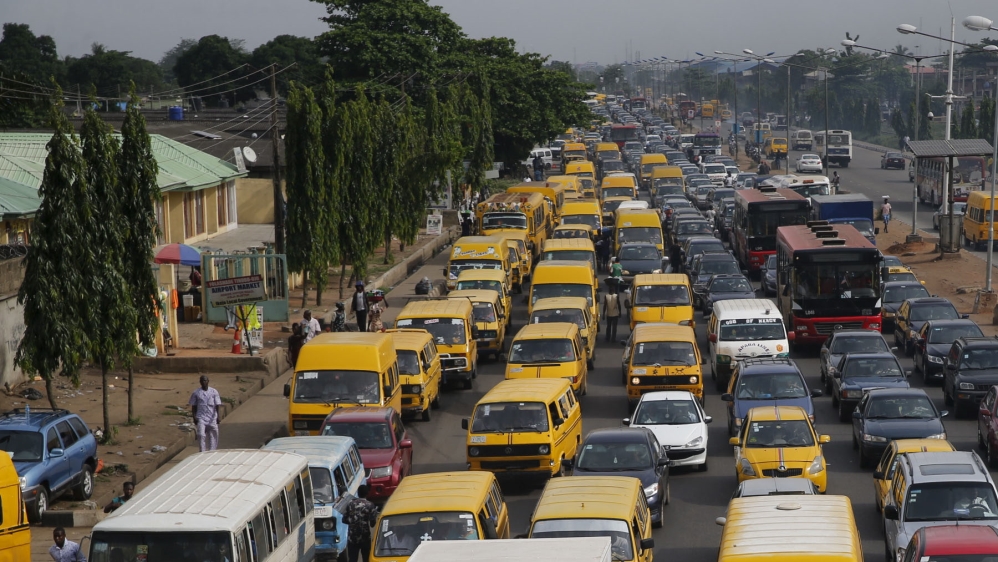The future of transport seems to be electric. More and more people around the world are choosing electric vehicles and the industry is undoubtedly on a positive path. According to the International Energy Agency, the number of electric cars, trucks, vans and buses on the world’s roads is set to increase from 11 million vehicles to 145 million by the end of the decade.
This growth is being driven by advances in technology in charging systems and battery areas, as well as government action to segregate fossil fuels and address the climate crisis. The significant investments made by the automotive giants in the electrical sector are further signs that electric vehicles are the future.
The African continent is also part of this growing wave of electrically powered transport. Several African countries such as Kenya and Rwanda have introduced tax incentives to encourage the import of electric vehicles and are working on developing their own electric two-wheelers and three-wheelers.
In many African cities, minibuses are the main form of public transport, supplemented by motorcycles. It is estimated that around 90 percent of air pollution in developing countries is due to vehicle emissions. In addition, emissions from traffic-related sources are a leading cause of chronic respiratory disease and premature death in Africa. Therefore, efforts to increase the use of electric vehicles are a welcome strategy to decarbonise transport and improve air quality in African urban centers. However, there are some issues that African countries must address in order to take advantage of the electric vehicle movement.
Before African governments take any further steps to convert to electric vehicles, they need to answer a few key questions: Will they introduce stricter regulations on imports of used internal combustion engines to prevent Western states that phase out these vehicles from throwing them back into their countries? Will they ensure that the used electric vehicles they import have a sufficiently long lifespan? Do you have the ability to safely dispose of the lithium-ion batteries powered by electric vehicles? Are there regulations to ensure the ethical mining of raw materials used in the manufacture of electric vehicles?
Africa is the world’s largest market for used vehicles. The United Nations Environment Program claims that poor countries are being used as landfills for used cars of poor quality. So far, however, only South Africa, Egypt and Sudan have banned the import of used cars.
As the West works to phase out internal combustion engines and replace them with electric vehicles, most of their old cars will find their way to Africa. Failure by governments to take immediate action will result in further pollution of the continent.
In addition, several African countries are promoting the importation of used electric vehicles through tax incentives without specifying any criteria as to what condition these vehicles should be in at the time of import. As electric batteries deteriorate over time and gradually become obsolete, importing used electric vehicles towards the end of their life could potentially create a massive waste problem for Africa.
Even in industrialized countries, barely 5 percent of lithium-ion batteries are recycled due to technical restrictions, economic obstacles, logistical and regulatory loopholes. Unless African governments carefully regulate the import of used vehicles and develop the recycling infrastructure for lithium-ion batteries, the proliferation of electric vehicles across the continent will lead to more, not less, pollution. African governments can also meet this challenge and reduce their dependence on polluting imports by encouraging the establishment of local assembly and manufacturing facilities for vehicles, including electric vehicles.
African cities urgently need clean, efficient and affordable local transport systems and less personal motorization, whether fossil or electrified. The incentives that empower Africans aim to make public transport more environmentally friendly and affordable to the masses.
The electrification of local transport requires a reliable energy supply. Toyota’s President Akiyo Toyo-da predicted that even if developed countries like Japan were hastily rolling out electric vehicles, they might not have enough energy to support them. At just over 40 percent, Africa has the lowest rate of electrification in the world. Around 640 million Africans have no access to energy. Many countries on the continent still have problems with stabilizing the energy supply for domestic use only, let alone for commercial and industrial consumption. In this context, the transition to electric vehicles in Africa should be viewed as a medium to long term goal rather than a short term strategy. The improvement in walking and cycling opportunities can be used as a quick win, thereby improving mass access to public services and facilities while improving air quality and relieving the cities.
As the demand for electric vehicles increases, African countries such as the Democratic Republic of the Congo (DR Congo), Zimbabwe, Zambia, Namibia and South Africa will supply the raw materials such as lithium, copper and cobalt used in their manufacture. These countries must adhere to ethical mining standards to meet this growing demand. Countries like the Democratic Republic of the Congo are already being scanned for human rights violations, including child labor, in their mines. You should seek support from movements like Mining With Principles and Initiative for Responsible Mining Assurance (IRMA) to enact the necessary regulations to enforce sustainable mining practices in the future.
To benefit from the global shift to electric transport, Africa should make sure it is in control of its own EV agenda. Commendably, there are already initiatives to localize vehicle electrification across Africa. In Uganda, Kiira Motors has launched locally manufactured electric buses. In Kenya, the National Youth Service has supported the development of an electric three-wheeler prototype, and pilot projects for electric buses are ongoing in Cairo, Addis Ababa and Nairobi. Such initiatives should be encouraged as they will help Africa develop an EV agenda that takes into account local realities and challenges.
The views expressed in this article are from the author and do not necessarily reflect the editorial stance of Al Jazeera.

